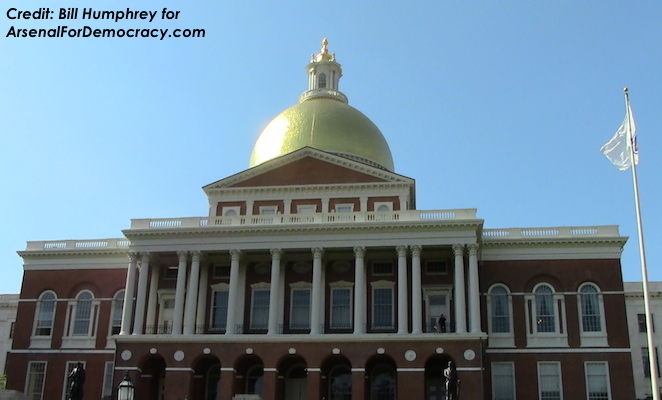The big lie is that we’re living in an age of scarcity and that the only path forward is to trim the fat and get our economy growing so that the rising will lift all boats, blah blah blah. The reality of course is much different. There is more than enough money to fund all of the priorities in the industrialized world.
In the United States, in particular, we have the money. We can do this. This is feasible. We can pay for all the things that we need to pay for, for everyone — but we have to go get the money.
Then people say “well you can’t get the money because people will just move overseas and the wealthy will just avoid taxes further.” But the reality is that they are dependent on us as a whole and we have no need to be dependent on their whims.
The reality is that the wealthy in this country would not be wealthy and could not continue to be wealthy without the benefit of the American system, which we largely let them use without strings attached. Their wealth derives from the U.S. legal code and U.S. courts, the U.S. banking system, the U.S. highway system, massive federal investments in technology research, all kinds of water infrastructure — really any of these things and more.
It’s up to us to exercise the political will to go get this money to fund these priorities. To go get this money and make it so that they cannot leave the country with their wealth or move it offshore but still benefit from all these systems.
They cannot continue to hold this wealth and participate in the United States economy with all the advantages that that brings to these wealthy people, unless they are paying a share necessary to sustain and stabilize the needs of the population of the United States of America.
It is an absurd proposition that these people should be allowed to continue to accrue infinite amounts of money without strings attached. It is absurd that the private and public sector keep “trimming the fat,” affecting the lowest in our society as well as the ordinary people in our society, at every possible opportunity — all so that the wealthy can continue to a mass fortunes that are truly beyond all human comprehension, beyond any possible need, beyond wealth itself.
We have enough money to fund all of priorities that we need to fund in our country if we go get that money. No one – no one – should be turning to right-wing populism or other evil answers to their problems just because they have been offered no other solutions to their legitimate grievances within the system.
The reality is that there are billions and billions and billions of dollars being hoarded offshore by wealthy individuals and enormously rich corporations, which should be taken back by the state and re-distributed to the people.
There are folks dominating the media narratives who have a great stake in perpetuating an existing system and saying that there is no alternative, that this scarcity is inevitable, and that we must be “realistic” and cut back, cut back, cut back, down to the bone until they have decided that they are satisfied.
But there will never be any point of satisfaction and there is no reason to insist upon some fictional claim that ordinary people cannot have these programs that are “overly generous.” There is no such thing as overly generous in the systems unless you are talking about the vast fortunes that are accrued to the wealthy for no reason. Out of all rational proportion.
We may live in an age of scarcity of certain natural resources, but we do not live in an age of scarcity in terms of budgets and social spending, except in a manufactured one.
Dispense with this false framing about hard choices when it comes to vital social needs. Dispense with this false framing that the objective of a 21st century civilization is to promote an arbitrary annual economic growth rate that is purportedly the only solution to lifting living standards and is somehow only achievable by cutting back any social spending that was making real gains in living standards.
We don’t live in a hard-scrabble subsistence society. We live in a society where there is no reason not to set, as the primary objective, a mission of raising living standards and life comfort for all our ordinary everyday people. The tangible and real things in life, that is. Not some national growth figures on a chart.
We can do this. If we choose not to, or if we choose to prioritize other things like wealth accumulation and meaningless growth figures, it is entirely a choice, not a forced decision.



